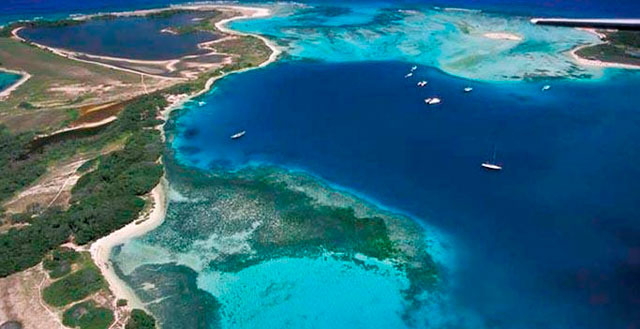 HAVANA, Cuba, Feb 6 (ACN) The Regional Cooperation Agreement for the Promotion of Nuclear Science and Technology in Latin America and the Caribbean published on its website on Sunday an article on a sampling expedition of the Caribbean Sea.
HAVANA, Cuba, Feb 6 (ACN) The Regional Cooperation Agreement for the Promotion of Nuclear Science and Technology in Latin America and the Caribbean published on its website on Sunday an article on a sampling expedition of the Caribbean Sea.
Experts from Cuba, International Atomic Energy Agency (IAEA) and the United States took part last December in the excursion, reported the Nuclear Communicating Network.
Its objective is to collect samples of water, microalgae and coral fish to carry out studies on the transference of toxins associated to the marine food chain.
Researchers made up the group from the Cuban Environmental Research Center of Cienfuegos, the Monaco Marine Environment Laboratory belonging to the IAEA and the Fishing and Costal Habitat Research Center of the National Oceanic and Atmosphere Administration (NOAA).
This is part of a regional project to establish an Observation Network in the Caribbean for the acidification of the oceans and its impact in the flowering of harmful algae. Its objective is to strengthen the sustainable management of marine resources in the Caribbean.
The sampling is taking place in the area between Cayo Largo del Sur in the extreme eastern part of the Canarreos archipelago and the Banco de Jagua in the province of Cienfuegos.
Assistant Researcher and Master in Science, Lisbet Diaz Asencio headed the CEAC group together with specialists Miguel Gomez Batista, Yurisbey Hernandez Boza and Joan Hernandez Albernas.
Marie Yasmine Dechraoui Bottein of the IAEA and Patricia Tester from NOAA represented the international institutions.
The project began in 2014 and attempts to strengthen research capacities in the Caribbean aimed at evaluating the acidification caused by the carbon dioxide emissions that the sea absorbs and its pH reduction, acid amounts or alkalinity of a solution.
Five countries of the Andean Group (Bolivia, Colombia, Ecuador, Peru and Venezuela) began working on the cooperation activities on nuclear issues of mutual interests and the IAEA welcomed the initiative to sponsor and coordinate them with the objective of expanding the work with other regional nations.
They then received the support of Argentina, Brazil, Chile, Paraguay and Uruguay and in a meeting organized in Vienna in 1984, ten States agreed in participating in the project.










Nos reservamos el derecho de no publicar los comentario que incumplan con las normas de este sitio